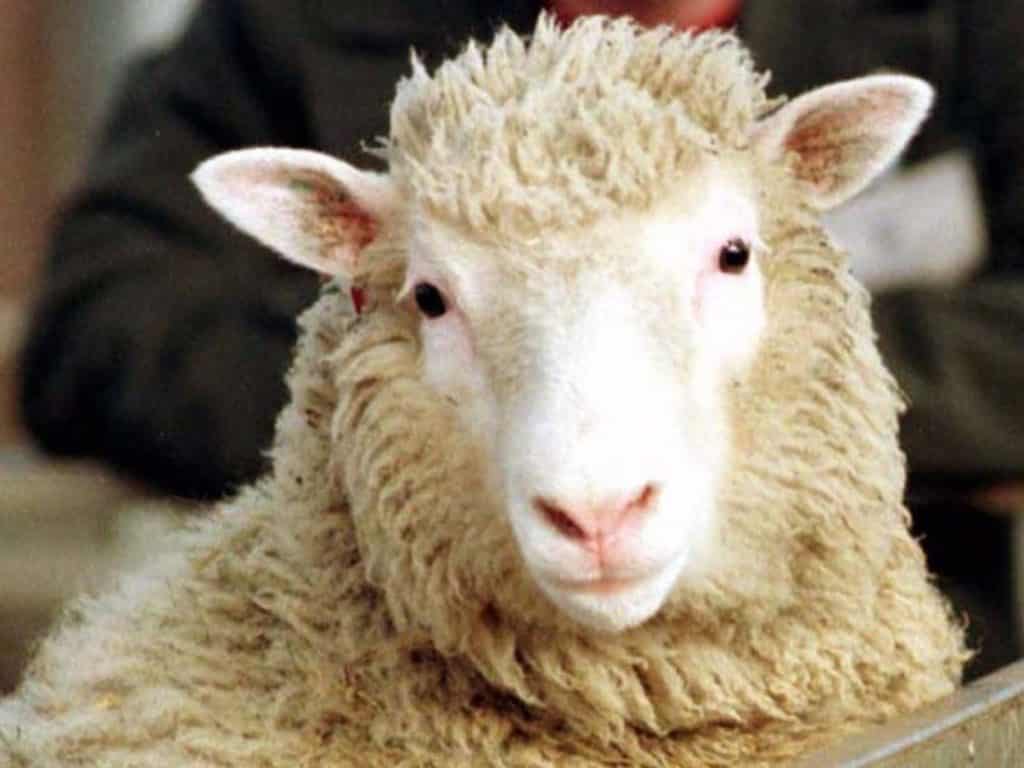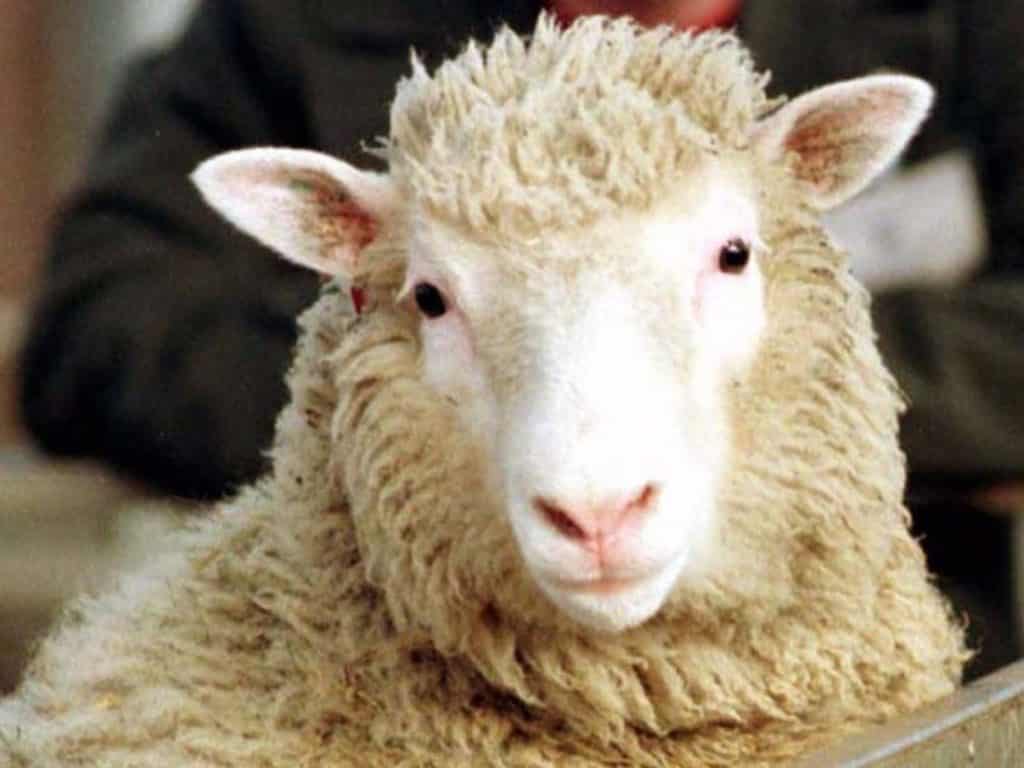In 1996, a sheep named Dolly was born at the Roslin Institute in Scotland. Dolly was the first successful case of cloning. She was a clone of a six-year-old sheep derived from its udder cells. Of 277 attempts, Dolly was the only successful case of a clone carried to term. The only irregularity were the telomeres at the end of her DNA were shorter than usual, which may have caused the diseases she developed when she was older. She died at the age of six, which is within the average range of a sheep’s life. This, of course, sparked a scientific debate over the pros and cons of cloning.

Paul Clements/AP
The pros of cloning are:
- Organ Donors: People on the organ donor list wait for 3 to 5 years on average before they get a replacement. In the US alone, 20 people die every day waiting for a new organ. Through cloning, we can have an indefinite number of matching organs to harvest. The movie “The Island” or the book “Never Let Me Go” or two stories with this exact premise. The ethical ramifications of this are numerous.
- Solves Infertility: Parents who can’t conceive or same-sex couples could use cloning technology to create children from their cells.
- Genetic research: Cell cloning can help improve gene therapy and editing techniques. There are thousands of applications for gene editing that are coming fruition today. In February 2019, gene therapy eliminated Hunter Syndrome.
- Human development: Cloning could revolutionize how humans develope. We can customize genes for humans to fare better in space or even when settling other planets.
The disadvantages or cons of human cloning have many ethical repercussions:
- Reproductive Cloning: One negative of cloning would be the emergence of designer babies. While editing out genes related to disease is well and good, scientists worry that many will edit cosmetic features, which raises numerous ethical concerns.
- Psychological Distress: Clones will likely feel psychological distress and harm directly from being clones. Whether they feel like imposters or that they have no control over their life, they will undoubtedly feel some psychological effects.
- Genetic Diversity: If cloning and genetic editing becomes widespread, the gene pool will shrink. In turn, this will diminish humanity’s ability to adapt and evolve.
- Inequality of Access: Gene splicing and therapy will undoubtedly be expensive. Only the wealthy could afford designer babies giving the rich a genetic leg up on the poor.
- Individuality: Human cloning could easily lead to a decline in human worth. If you can easily “replace” someone who died, why does it even matter? In addition to that, we don’t know how society will treat clones. If humanity’s track record holds, clones could quickly become second class citizens.
- Health Issues: Cloning technology is far from perfect. Successful clones are more likely to contract diseases and age prematurely, taking away the clone’s ability to lead a healthy life.
Latest posts by Alan Behrens (see all)
- Tulip Mania – The Story of One of History’s Worst Financial Bubbles - May 15, 2022
- The True Story of Rapunzel - February 22, 2022
- The Blue Fugates: A Kentucky Family Born with Blue Skin - August 17, 2021
